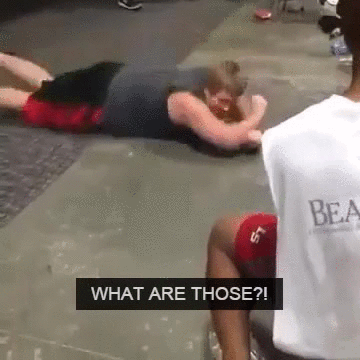- The purse that she gave me is so cute.
- I lived in a town where everyone was
tall.
- If it rains tomorrow, we will cancel the trip.
- Everleigh bought toys after her dance class.
1. Because of the pandemic going on, lots of students are having online classes.
2. Social distancing has become a general rule to avoid spreading the virus. Therefore, everyone has to be 6ft away from other people out in public.
3. Covid-19 has proven to be a deadly virus that led the high-risk population group to be afraid and stressed about their health.
4. No one wants to become infected, so I have not seen my relatives in months.
5. Due to the mandatory use of facial masks, many people have learned how to make them themselves.
Outline
Thesis statement: Homework has no place in education as it lacks any proof of their benefits and actually has provided students with negative experiences rather than positive experiences.
I. Teachers and parents believe that lots of homework is equal to successful education which is not true.
No evidence that homework has to do something with students' success.
It will not teach responsibility as the myth exposes.
Excuse of teachers to make students “learn” by themselves
No matter the outcome of classes, homework will make them learn
II. Homework provides students with negative experiences rather than positive experiences.
Constant assignments steal time from children to be children.
Kids do homework for hours before having permission to play
Amount and purpose of homework has created a negative connotation around it.
Added value means stress, anxiety and many more negative feelings
Conclusion: Homework should be banned from schools as what is known right now because there is no evidence of any benefit rather disadvantages.
The Overestimation of Homework
School is where children spend the most part of their days; almost all daylight, you will find kids in an institution learning about all sorts of things. After the day is over, they go home just to face homework, topics that they already saw and discussed in class but supposedly need to review and practice again alone. However, Alfie Kohn talks numerous times in his article “Kids might be right after all: homework stinks¨ how the existence of homework has basically no fundament. He talks about the non-existent data that supports the need of homework for kids throughout all of their educational life and its consequences. Homework has no place in education as it lacks any proof of their benefits and actually has provided students with negative experiences rather than positive experiences.
Since a long time ago, teachers and parents believe that lots of homework is equal to successful education; however, they need to change their minds because that belief is actually false. It is not fair to affirm that homework will help students to succeed in life when there is no evidence that homework has to do something with that. In his article, Alfie Kohn points out that there is no evidence that homework has to do something with achievements or if it is vital or helpful. People keep thinking that homework “raises achievement, teaches independence and good work habits” (164 ) but its non-existent proof says otherwise. Homework will not teach responsibility as the myth exposes and it will not have an influence in the personal development of students; in fact, only they can have it, with their effort and their responsibility sense. The amount of assignments that students make will not create a big difference, homework will not help students in their attitude changes, they are the only who can decide if they want to be responsible or not. Also, it is not possible to have a successful education with a lot of homework when professors use it as an excuse to make students “learn” by themselves regardless of their performance as teachers. There are instructors that do not care about whether students learn or not in class. They just wait for students to do homework and learn on their own to complete the assignments. That way, their ineffectiveness is solved by how much homework they can leave. The belief that homework will create successful students does not have a scientific basis, for that reason it is not accurate to think the more homework assigned and done the more success gained.
Around the globe, there is plenty of evidence that homework provides students with negative experiences rather than positive experiences. Since the beginning of their academic life at the age of 5/6 all the way up through at least highschool kids have homework almost daily; this constant pile of assignments steals time from children to be actually children. Parents are taught by society the rule of homework being the most important and first thing that kids have to do when home, leaving completely aside time to play, recreate and pick up hobbies. This practice robs kids from their mornings, afternoons, evenings and even nights. After a minimum of 4 hours in school they get home to go more hours of school. Homework in reality provides students with stress and negative emotions against learning as it takes a great portion of children lives away in exchange for a number. Most of the time, homework has a numeric value which functions as a threat for students. Indeed, assignments have lost the initial purpose of it as practice and have become a method to evaluate students' capacity to work over pressure and finish tasks. This leaves aside the quality of it or the knowledge acquired, as learners are forced to work for a score rather than learn. Because of this, there is proof as Kohn mentions that homework only effect is “more negative attitudes on the part of students who get more assignments”. (164) Feelings like excessive stress, anxiety and fear of failure are more and more present among students each day while assignments increase.
As expressed, kids primary activity has become school and only school. Regardless of the constant lack of data on the effectiveness of homework, teachers and professors keep leaving it persistently to pass on their job. The educational stress is making students every day more frustrated and creating an unhealthy relationship with standardized school-knowledge. For professors it's basically just a way to excuse poor performance or delegate responsibilities without taking into account the repercussions in the students’ mental health. Alfie Kohn has exposed very clear the reasons why kids are possibly right about the bad aspects of homework. Thus, homework should be banned from schools as what is known right now because there is no evidence of any benefit rather disadvantages.
Kohn, A. (2006). Kids May Be Right After All: Homework Stinks. USA Today. Recovered from www.alfiekohn.org

This time, a classmate Ariela and I tried something different! The following video is about some topics regarding the book "Writers at Work".
We talked about a response essay of the article "The end of privacy" by Adam Penenberg! Also gave information and opinions on the article "Kids May Be Right After All: Homework Stinks" by Alfie Kohn!
As non-native speakers, there are plenty of mistakes in this video, we ask cordially to understand that we are learning. 😌
This is the chart that we talked about at the very beginning:
Sources of identity theft

I made this short video about the topic (fun fact: i love PowerPoint) Select HD!
5 RULES FOR EMBEDDED QUESTIONS

A noun clause is a group of words acting together as a noun. These clauses are always dependent clauses (they do not form a complete sentence).
How to spot a noun clause? Look for these words (conjunctions)
⛭How, That, What, Whatever, When, Where, Whether, Which, Whichever, Who, Whoever, Whom, Whomever, Why




A complete sentence has three components: